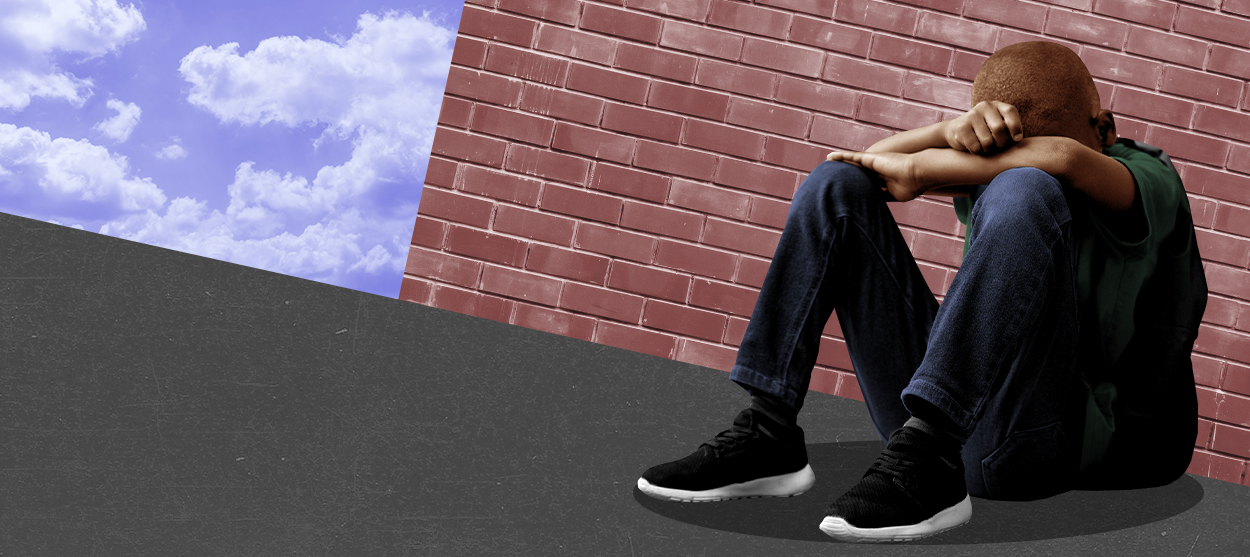Why kids bully — and what to do about it
Experts weigh in on the root causes of bullying behavior and the best course of action


A free daily email with the biggest news stories of the day – and the best features from TheWeek.com
You are now subscribed
Your newsletter sign-up was successful
For many parents, one of the biggest worries is that their kid is being picked on. And unfortunately, that concern isn't unwarranted: In 2017, almost one in three 6th-graders reported being bullied at school.
Kids picking on other kids is an age-old problem that many schools struggle to deal with, no matter how comprehensive their anti-bullying policy. When my son was the target of bullying behavior a couple of years ago — name-calling, initially, which escalated into physical violence — we hit an obstacle: His school saw the incident as conflict, not bullying, and tried to deal with it using mediation strategies. That simply didn't work.
This came as no surprise. As the National Bullying Prevention Network points out, conflict resolution or mediation strategies can send the message that both children are "partly right and partly wrong," or that there is underlying conflict to be worked out. But when someone is being victimized by someone else, this is the wrong approach entirely.
The Week
Escape your echo chamber. Get the facts behind the news, plus analysis from multiple perspectives.

Sign up for The Week's Free Newsletters
From our morning news briefing to a weekly Good News Newsletter, get the best of The Week delivered directly to your inbox.
From our morning news briefing to a weekly Good News Newsletter, get the best of The Week delivered directly to your inbox.
My son and I talked about what was going on and did what we could to keep him away from the bully. Eventually, the bullying behavior stopped, but other children in the school became targets. My priority was my son, of course, but I couldn't stop wondering what makes a 9-year-old boy drag another child to the ground and kick them in the head. The most important question — one nobody in any position of authority seemed to be asking — was why?
The consensus among experts is that children who bully must be held accountable for their behavior, but it's just as important to find out the root of the problem. Only then can we help make positive long-term behavioral changes.
Children may bully for a number of reasons, says licensed mental health counselor GinaMarie Guarino. They may be the victim of abuse or neglect in their own homes, which often leads to a feeling of helplessness. "They may seek a sense of control or an outlet for their emotions at school," Guarino says. "Since they are often hurt, they only know how to cope by hurting others in return."
But abuse and neglect at home aren't the only reasons kids might bully. If their parents are disciplinarians or set unreasonable expectations, they might try to relieve the strain by turning on other kids. "Children who are under a lot of pressure to perform or be, feel, and act a certain way, may turn to bullying to make sense of what they go through themselves," Guarino says.
A free daily email with the biggest news stories of the day – and the best features from TheWeek.com
Children may also bully because they have behavioral issues that haven't been addressed by a professional, she adds. "Children with untreated behavioral issues can turn to bullying as an outlet for their stress and energy, or simply because they don't understand any better."
If we want to help children change their behavior, it's crucial that we keep the focus on the behavior itself, says Pacer's National Bullying Prevention Network. In other words, avoid labels. Anyone can bully — not just the biggest boys or the most popular girls in class. If we label a child a "bully," we send the message that the behavior is fixed and unlikely to change over time. The reality — backed up by research — is that many children who bully may also be the victim of bullying behavior themselves.
Unfortunately, many kids who display bullying behavior need more help than schools can provide. "Schools are probably limited in their ability to change the systemic family issues that contribute to bullying, such as neglect, poor parental management of anger, or parental enabling of siblings that are bullies," says licensed marriage and family therapist Carrie Krawiec.
In other words, bullying is an extremely complicated phenomenon. It's context-specific and often tied to the existing culture and climate of the school and the community. However, there needs to be a plan in place — one everybody knows about and understands how to implement.
"We need more comprehensive prevention," says Anjali Forber-Pratt, assistant professor in the Department of Human and Organizational Development at Vanderbilt University. "In many cases, we need to address the issues beyond the bullying behavior to include more comprehensive school-wide prevention strategies. For example, what are the attitudes and behaviors of the adults in the school building? What are the policies? What is the climate like in the school, and how can that climate be adjusted to promote a healthy, inclusive, and supportive environment where then bullying is less likely to occur?"
Forber-Pratt points out that when it comes to specific consequences for bullying behavior, there are other other factors at play. "Often, consequences are not implemented fairly or equitably, and it's our most vulnerable students — students of color, students with disabilities, students with English as their second language — who often end up paying a steeper price."
What kinds of things can educators and parents do when they encounter bullying? Asking the right questions is a good place to start. Gail Saltz, MD, associate professor of psychiatry at the NY Presbyterian Hospital Weill-Cornell School of medicine and host of the Personology podcast, says a child exhibiting bullying behavior needs help to develop empathy for those they are victimizing. Questions like "How do you feel when someone bullies you?" and "What is another, kinder way to express your anger or frustration with a situation?" can help kids recognize the damage and pain they are causing.
Bullying behavior should also come with reparations, Saltz says. "This means they must make up for any damage inflicted, whether it's verbal or physical. Offer new behaviors to help them manage the situation, and always hold them accountable in making repairs."
And if it's your child who is being bullied, your focus should be on them. "Help them create a strong sense of self," Krawiec says. "Self-awareness, self-acceptance, and self-confidence will help to diffuse the avenues that children who bully use to gain power."
Want more essential commentary and analysis like this delivered straight to your inbox? Sign up for The Week's "Today's best articles" newsletter here.
Claire Gillespie is a freelance writer with bylines on Health, SELF, Refinery29, Glamour, The Washington Post, and many more. She likes to write about parenting, health, and culture. She lives in Scotland with her husband and six kids, where she uses every (rare) spare moment to work on her novel.
